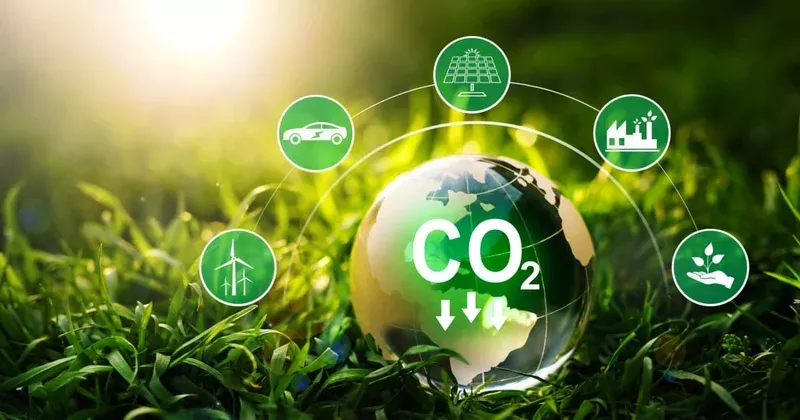Carbon footprint
- Home
- environment
- carbon footprint
Carbon footprint
The carbon footprint of chemical recycling is significantly lower compared to any other processing, recycling of waste plastics and also material or energy recovery of plastics.
Report of the European Environment Agency (EEA), of which the SAŽP is also a member of the consortium in March 2019, where on page 32, point 4.3 Environmental impacts reads: “Emissions can be reduced in plastics production by improving energy efficiency and using renewable energy sources emissions of oil are 3.7 tonnes of CO2 per tonne of plastics produced). By comparison, with low mechanical recycling (involving cleaning, remelting and modernization steps), CO2 emissions are 1.4 tonnes of CO2 per tonne of plastics, while with chemical recycling (for example, pyrolysis, where plastics are broken down into monomers or chemicals, used as raw materials for new products) the calculated CO2 emission is 1.0 tonne of CO2 per tonne of plastics. Assuming that potentially 56 percent of the volume of plastics could be mechanically recycled or reused and another 11 percent could be recycled by chemical recycling techniques (such as pyrolysis and depolymerisation), this would roughly reduce emissions from 233 to 144 million tonnes of CO2 per year, compared to the production of new plastics and their incineration at the end of their life. ”(Material Economics, 2018).

Simplified with carboon footprint:
-
The production of 1 ton of plastic from oil / refinery / will produce 3.7 tons of CO2
-
The production of 1 tonne of plastic from plastic waste by mechanical recycling produces 1.4 tonnes of CO2
-
The production of 1 tonne of plastic from plastic waste by chemical recycling will produce 1.0 tonne of CO2
The European Strategy for Plastics in the Circulating Economy and the annexes aimed at transforming the way plastic products are designed, manufactured, used and recycled. All plastic packaging should be recyclable by 2030. The strategy also emphasizes the need to introduce specific measures, possibly a legislative instrument, to reduce the impact of disposable plastics on the seas and oceans.
The potential for recycling plastic waste is largely untapped in the EU. The reuse and recycling of plastics at the end of their life is very low, especially compared to other materials such as paper, glass or metals. At present, demand for recycled plastics in Europe accounts for only around 6% of total demand for plastics. The EU plastics recycling industry has been negatively affected in recent years by low commodity prices and uncertainty about outlets.
Estimates have shown that the production of plastics and the incineration of plastic waste generate around 400 million tonnes of CO2 per year worldwide. Increased use of recycled plastics can reduce dependence on the production of fossil fuels for their production and reduce CO2 emissions. It is estimated that the potential annual energy savings that could be achieved by recycling all plastic waste worldwide is equivalent to 3.5 billion barrels of oil.
More about Carboon footprint worlwide
In terms of comparing CO2 greenhouse gas production, the EUREX ECO 01 produces approximately as many emissions per hour of maximum operation as 2.5 family houses burning solid fuels and 5 family houses burning natural gas.
According to the estimates of the Ministry of the Environment, we have approximately 350,000 households burning solid fuels in the Slovak Republic, of which 36%, ie 126,000, have a boiler older than 30 years (source: https://www.cepta.sk/index.php/sk/ air-quality ).
These family houses, which are the biggest air pollutants, do not need an environmental impact assessment in accordance with Act no. 24/2006 Coll.
The EUREX ECO 01 facility, which is a much lower air pollutant than the above-mentioned family houses, is considered to be a facility that recovers waste by thermal processes and its operation requires a mandatory environmental impact assessment without limit. This also means when recovering one kg per year.
Technology
ABOUT US
we are on social NETWORK
Eurex Energy, s.r.o. capitalized on its own development using foreign knowledge and experience in the production of new technology in the use of renewable and alternative energy sources, the EUREX ECO 01 equipment for the recovery of mixed waste plastics in the form of chemical recycling.ed.

